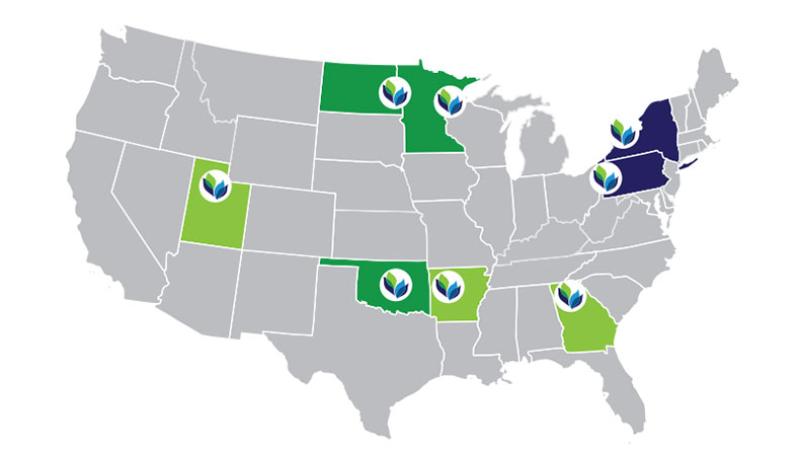Developing the Child Welfare Workforce
GSSW’s Butler Institute to serve as key partner in National Child Welfare Workforce Institute

Child welfare agencies nationwide struggle to recruit and retain their workforce due to challenges such as low pay and high burnout. Annual child welfare workforce turnover rates range from 20%–40%, and it can cost an agency more than $50,000 to hire and train just one child welfare worker. Ultimately, these factors can negatively impact outcomes for children and families.
Agencies will now receive workforce supports from the University of Denver Graduate School of Social Work Butler Institute for Families, which has received a third round of funding as a partner in the National Child Welfare Workforce Institute (NCWWI). Funded by a $24-million grant from the U.S. Children’s Bureau and led by the University of Albany, NCWWI aims to strengthen child welfare agencies and partnerships between agencies and schools of social work in three state, two county and three tribal jurisdictions located in eight states nationwide.
“Our mission is to generate lasting connections and successful collaborations between agencies and universities so we can create a skilled workforce for generations to come,” says Research Associate Professor and NCWWI Director Robin Leake.
Through 2023, NCWWI will work with the eight sites to help them improve the health of their workforce to improve outcomes for children and families. NCWWI will assist sites in conducting comprehensive organizational health assessments, supporting BSW and MSW traineeship programs through partnering schools of social work, supporting leadership academies for child welfare managers and directors, and implementing evidence-based strategies to build the child welfare workforce.
Previously, Butler was responsible for NCWWI program evaluation, communication and dissemination, including generating and gathering resources about the child welfare workforce, fostering discourse and sharing resources. Butler’s new, expanded role includes project management and testing an implementation model for transformational systems change within agencies.
“Using an implementation science framework, we will conduct a comprehensive assessment of organizational health for each agency, look at strengths and gaps, and then spend four years supporting implementation of these strategies,” Leake says. NCWWI employs around 40 staff members and consultants nationwide, including Butler team members Carole Wilcox, Charmaine Brittain, Anna De Guzman, Shauna Reinks, Nancy Lucero, Sallie Strueby, Amy Grenier, Salvador Armendariz, Katie Golieb, Kyana Bell, Tabitha Carver-Roberts, Sarah Roman, and PhD student Jennifer Sedivy. Assistant Professor Amy He is the project’s principal investigator for evaluation.
“We are evaluating highly complex systems and systems change in a way that is culturally responsive, community driven and outcome focused,” says Professor He. And, because the child welfare workforce often does not do a good job recruiting and retaining staff of color that match the populations they serve, racial equity will be a focus of the work with both university partners and community agencies, Professor He notes.
NCWWI’s programs will impact more than 5,000 staff across eight public and tribal child welfare sites that serve hundreds of families with child welfare involvement. NCWWI also houses a national resource library with thousands of products, tools, research, webinars, podcasts and training materials for child welfare workforce development. Approximately 2,600 people access the resource library each month, and more than 34,000 subscribe to NCWWI’s newsletters.
“Our ultimate goal is to build each organization’s independent capacity to continue systems change and capacity for recruitment and retention,” Professor He says. “We want them to have a demonstrated process that other child welfare jurisdictions can follow and a thriving, healthy child welfare workforce that works to improve family outcomes.”




